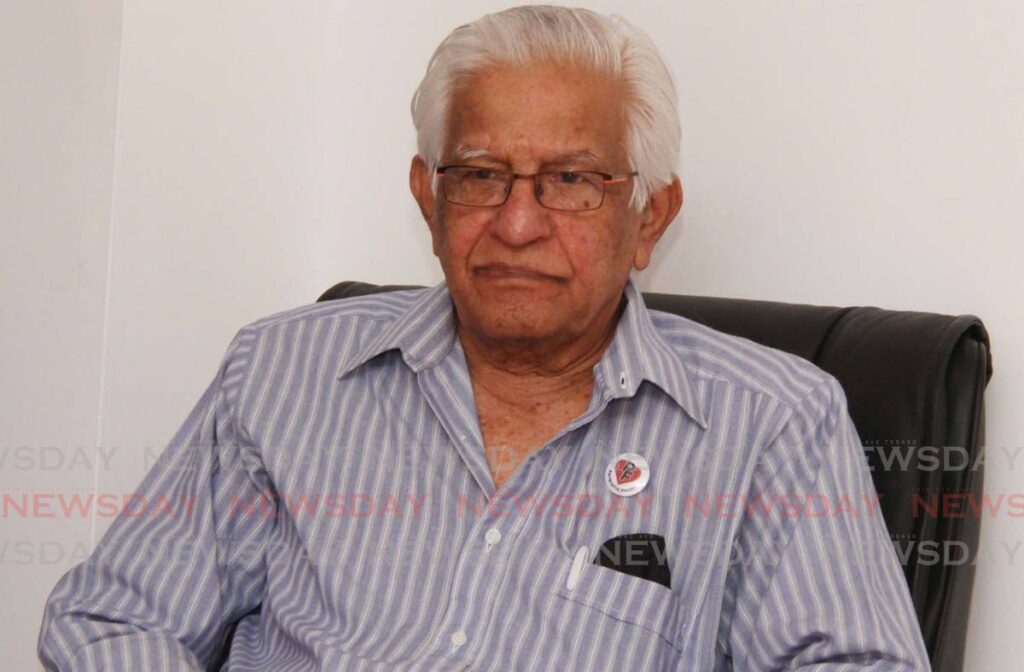Former MPs fired by Panday hail late ex-PM: 'He was a progressive leader'

ALTHOUGH Collin Partap was fired as legal adviser in the Office of the Opposition by Basdeo Panday, and his father, Harry, switched allegiance to the Kamla Persad-Bissessar faction of the UNC, the two former MPs said they are saddened by the passing of the country’s fifth prime minister.
Harry Partap served as labour minister during Panday’s tenure as prime minister from 1995-2001. In the quest to wrest political leadership from Panday, Partap gave his quiet support to Persad-Bissessar, who appointed him ambassador to South Africa after she won the 2010 general election.
Collin contested and won the Toco/Manzanilla seat and was made minister in the Ministry of National Security, but in 2012, he was also fired, this time by Persad-Bissessar, after a DUI incident outside the Zen nightclub in Port of Spain.
While he maintained his soberness, Collin was convicted for failing to submit to a breathalyser test, and fined $5,000 by then chief magistrate Marcia Ayers-Caesar.
In a joint statement, the father and son expressed sadness and offered condolences to Panday’s widow, Oma, and his four daughters, including Mickela.
“His contribution to the development of politics and trade unionism in TT had been phenomenal. He was a progressive labour leader who used unorthodox methods to win benefits for sugar workers, in particular, and the wider working class in general.
“Such innovative tactics as ‘one week in and one week out’ and ‘free labour’ confounded the former Caroni Ltd management and the ruling elite at the time,” the men wrote.
Panday, like Tubal Uriah “Buzz” Butler, they said, believed that a “marriage” of labour, management and national unity was essential to economic and social progress.
“He advocated the concept of 'worker-participation' in management as a means of achieving industrial peace.
“It was first tried out at Caroni Ltd with a worker-representative on the board of management, (and) continued under the National Alliance for Reconstruction (NAR) but abandoned when the PNM returned to office in 1991.
“When Panday became prime minister in 1995, however, he ensured that all state-owned companies had a worker-representative on their boards."
The Partaps argued that the worker-participation concept was not fully grasped, as labour and management could not bridge the historical gap of distrust.
“As a result, Panday pushed for tripartitism. It was a plan involving the co-operation of labour, management and government in the name of industrial peace. Tripartitism had the backing of the UN International Labour Organisation (ILO) through an international convention.”
The father and son said Panday was a politician “par excellence,” carefully choosing his political battles thereby, making both the then United Labour Front (ULF) and the succeeding UNC relevant in the political discourse.
“That political characteristic has been lost in the present UNC which is consumed by negativity and fighting Don Quixote windmills. After his removal as leader of the UNC in 2010, Panday often expressed concern that the party which he founded would drift away from its original mooring. And so, it did.”

Comments
"Former MPs fired by Panday hail late ex-PM: ‘He was a progressive leader’"